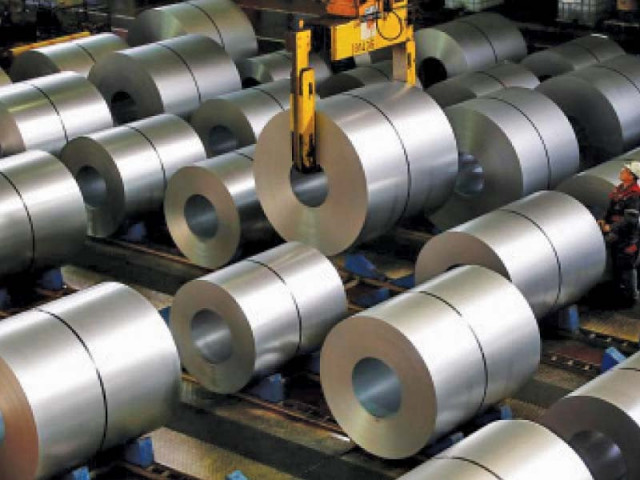Steel industry in trouble: PALSP
Struggling to stay afloat amid shortage of raw material, high inflation

The country is grappling with a major shortage of steel rebars as a result of the government’s failure to open Letters of Credit (LCs) for raw material required by the industry. Matters have been further exacerbated by the recent announcement of a rise in energy prices and an increase in the General Sales Tax (GST) as part of the International Monetary Fund’s (IMF) conditions.
The steel industry has declared that it is facing a major crisis as it struggles to stay afloat in the face of a devalued currency, rampant inflation and shortage of raw material. Despite its critical importance to the country’s economy, the industry is grappling with numerous challenges that are taking a heavy toll on its operations.
“The country is facing a severe shortage of steel rebars due to the State Bank of Pakistan’s (SBP) inability to open LCs for raw material required by the industry,” said Wajid Bukhari, Secretary General of Pakistan Association of Large Steel Producers (PALSP) in a statement.
“The steel sector is in the midst of unprecedented turmoil, with massive currency depreciation, shortage of raw material, high inflation and increased energy prices. The situation is extremely difficult and unviable for the steel industry to survive,” underlined Bukhari.
Speaking to The Express Tribune, steel sector Analyst at NBP Funds, Muqeet Naeem said, “The price of steel rebars have jumped by 50% in the past two and half months.”
“Under various heads, including quarterly tariff adjustment, deferred fuel price adjustment, and the imposition of a surcharge of Rs1 per unit on big power consumers, the government has approved a revised circular debt management plan (CDMP) where the tariff will rise by around Rs7-8 per unit until August 2023,” explained Bukhari, adding that this will have a direct inflationary impact of Rs7,000 per tonne, whereas the increase of GST from 17% to 18% will further have an impact of Rs3,000 per tonne.
Currently, the price of deformed rebars stands at around Rs305,000 per tonne, whereas inflationary pressures will warrant further price increases.
According to Bukhari, “The steel sector has been hit hard due to problems with the opening of LCs and the rapidly depleting foreign exchange reserves – resulting in a shortage of raw material.”
“The manufacturers are being forced to operate on very low capacity or to close their units, which has raised the cost of production and made it unviable for operation. The increase in the price of steel is also due to the massive devaluation incurred by the rupee, along with demurrage and detention charges on containers stuck at ports,” he added.
“Steel rebar producers have been raising prices since the beginning of this calendar year. They have raised prices by roughly Rs100,000 per tonne, or around 50% in the current year, out of concern that there will be a severe scarcity of raw material due to restrictions on the establishment of LCs,” noted Waqas Ghani Kukaswadia, steel sector Analyst at JS Global.
“This dramatic increase in rebar costs coupled with record high interest rates and inflation is expected to impact the demand of cement and other building materials as well as a result of which housing and flood reconstruction projects may face delays,” he further stated.
Published in The Express Tribune, February 14th, 2023.
Like Business on Facebook, follow @TribuneBiz on Twitter to stay informed and join in the conversation.



1733130350-0/Untitled-design-(76)1733130350-0-208x130.webp)














COMMENTS
Comments are moderated and generally will be posted if they are on-topic and not abusive.
For more information, please see our Comments FAQ